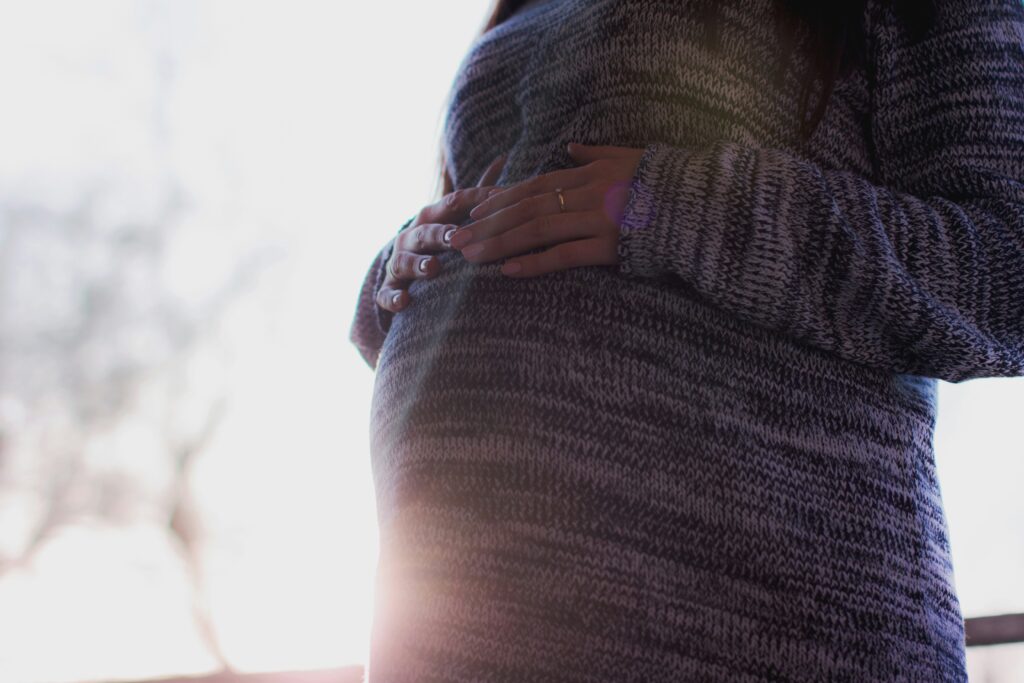Eating disorders impact the lives of millions of people. Conditions like anorexia nervosa, bulimia nervosa, OSFED, and binge eating disorder can take a toll on a person’s health and wellbeing in many ways, and can lead to challenging health concerns. One challenge individuals experiencing eating disorders may struggle with is fertility. This intersection of two very personal journeys, an eating disorder and fertility, can be frustrating and heartbreaking. Fortunately, with access to appropriate care and support, it is possible to live a life beyond eating disorders. This article will help you understand the signs and symptoms of eating disorders, explain the connection between eating disorders and fertility, and set you on the path to finding the help you may need.
An eating disorder is defined by the American Psychiatric Association’s Diagnostic and Statistical Manual of Mental Disorders (DSM-5) as a condition characterized by extreme and persistent changes in eating behaviors, often accompanied by negative thoughts and emotions. Eating disorders may appear as obsessions around food and eating, fixation on body weight and size, and a distorted body image. Eating disorders can have serious impacts on physical health and emotional wellbeing. Eating disorders frequently co-occur with mental health conditions like anxiety, depression, and obsessive compulsive disorder (OCD).
Signs and symptoms of eating disorders can look different in every individual. Variation in symptoms can depend on the particular diagnosis, the severity of the disorder, family history, and other co-occurring disorders. It is important to recognize eating disorder symptoms so you can identify any concerns in yourself or a loved one and seek the necessary care and support.
Physical signs of an eating disorder may include:
Changes in weight
Gastrointestinal issues
Dizziness and fainting
Inability to regulate body temperature
Problems with sleeping
Menstrual irregularity
Dry skin and nails
Thinning hair
Fatigue and muscle weakness
Lowered immune response
Behavioral signs of an eating disorder may include:
Anxiety, depression, and other mental health struggles
Frequent dieting
Preoccupation with body weight or body shape
Fixation on calories and other nutrients
Extreme pickiness in choosing food
Excessive exercise
Patterns of binge eating and/or purging
Secrecy around eating habits
This is not an exhaustive list of symptoms, but recognizing some of the signs can help with early intervention and finding the care and support you need. When considering the interplay between eating disorders and fertility, some of these symptoms have serious impacts on a person’s ability to conceive. Read more to learn about how eating disorders can affect fertility and the reproductive system.
When an eating disorder co-occurs with infertility and reproductive concerns, there can be an increased level of challenges and frustrations. You might be surprised by how eating disorders affect the reproductive system in both obvious and subtle ways.
Whether a person experiences anorexia nervosa, bulimia nervosa, or another eating disorder, these conditions can affect the body in similar ways. When a person is restricting their energy and nutrient intake, it leaves the body with lower fat stores, reduced protein stores, and decreased availability of essential nutrients and vitamins. Fat, protein, and vitamins are all essential for your body to undergo the natural daily processes in all your body’s systems. When these resources are depleted in the body, the systems can become dysfunctional. Those who experience eating disorders have an increased risk of thyroid problems and reduced fat stores, which has numerous impacts on hormones. Hormones are responsible for a wide variety of essential body functions, including those of the reproductive system. Hormones like estrogen and testosterone, critical for fertility and reproduction, can actually be reduced significantly when a person experiences an eating disorder and energy and nutrients are restricted.
Though there is much to be understood about the connection between nutrition and fertility, it is known that there is a firm correlation between what a person eats and their risk for fertility complications, regardless of gender. For men, eating disorders can lead to lower sperm count, reduced sperm motility, and erectile dysfunction, all of which reduce fertility rates. For women experiencing an eating disorder, menstrual irregularity or amenorrhea (when menstruation stops altogether) can occur. This inconsistency in menstrual cycles signals parallel irregularity in ovulation which can result in significant fertility issues. However, it is important to note that a person can become pregnant even in the case of menstrual irregularity or cessation of periods. Changes in hormones due to eating disorders can also result in shrinking uterus and ovaries, seriously impacting fertility and conception.
Eating disorders can have serious effects on fertility and reproductive health. If you or a loved one is experiencing an eating disorder and having troubles with fertility, it is important to reach out for help.

Though eating disorders can have serious impacts on sperm health and menstruation, and thus fertility, there is evidence that the long-term effects of eating disorders on fertility may be less extreme than one may initially assume. Some studies have found that women experiencing eating disorders may take longer to conceive, but for those who have recovered from eating disorders, rates of fertility and conceptions remain similar to those who have not experienced eating disorders. If you or a loved one is struggling with an eating disorder, please know there is hope and recovery is possible.

Pregnancy can be an exciting and challenging time. Managing an eating disorder during pregnancy can make this experience more challenging and greatly impact the health of both the parent and baby. For those who experience eating disorders, significant physical shifts and changes in body size and body shape during pregnancy can be alarming and can lead to increased eating disorder behaviors and symptoms.
When someone experiences an eating disorder during pregnancy, it can lead to higher risks of complications for both the parent and baby. Risks for the pregnant person may include:
Malnutrition and dehydration
Gestational diabetes
Mental health concerns
Organ dysfunction
Premature birth
Complications during labor
Eating disorders during pregnancy can also impact the health of the baby. Health risks include:
Irregular fetal development
Low birth weight
Chemical and nutritional imbalances
Reduced immune response
Miscarriage
For those who currently experience an eating disorder during pregnancy, it’s important to get help from a doctor. Working closely with eating disorder healthcare providers, as well as obstetrics and gynecology professionals, can help you have a healthy pregnancy and postpartum period.
For those who are pregnant or trying to become pregnant, it can be helpful to find professionals that specialize in eating disorders, such as therapists, dietitians, or psychiatrists, as well as understand reproductive health. Eating disorder treatment can vary based on a variety of factors, such as insurance, geography, type of facility, and other co-occurring disorders. Depending on these factors, there are various levels of care, from outpatient treatment to residential treatment. Working closely with a care team will help you find the support that is right for you on your journey to recovery.
If you or a loved one is experiencing an eating disorder or fertility problems related to disordered eating, you are not alone. Recovery is possible and help is available with the National Alliance for Eating Disorders.

